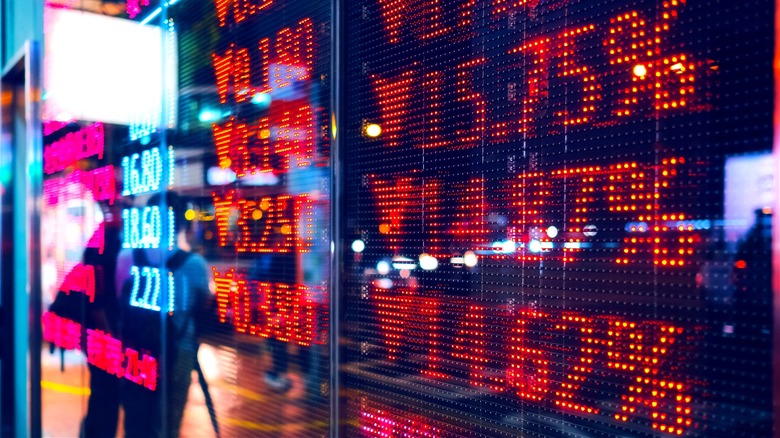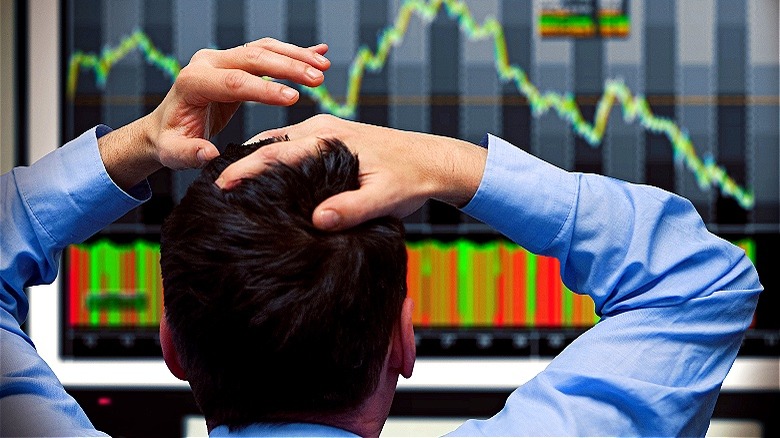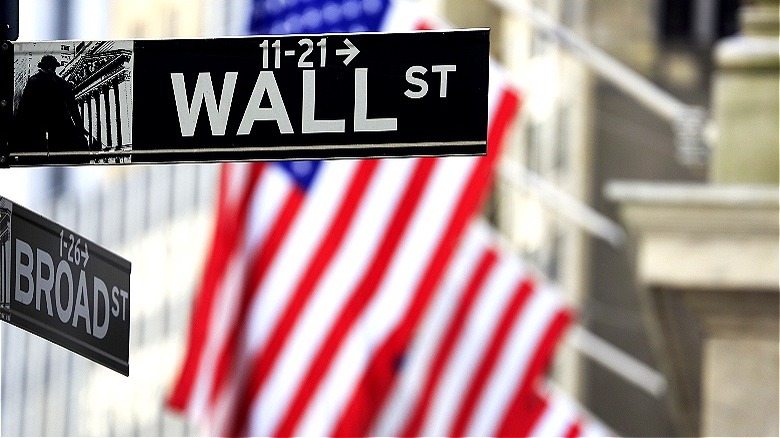Why It's Important To Keep Calm When The Markets Are Crashing
Fears over a potential recession in the U.S. led to widespread stock market crashes first thing on Monday morning, August 5, negatively impacting stocks across the U.S., Europe, and Asia. While there are numerous factors currently spooking investors, the precipitating element for this particular stock market crash is attributed to the Bureau of Labor Statistics' July 2024 jobs report, which was released the previous Friday, August 2. The report showed that the U.S. unemployment rate shot up to a three-year high of 4.3%. Also concerning was that employers only added 114,000 jobs in July (compared to estimates that predicted 175,000). Since unemployment and job growth are red flag signs of a recession, the market took note.
On top of the less-than-stellar jobs report, an unease in general has been plaguing investors due to multiple ongoing factors. Between the rollercoaster U.S. presidential election, ongoing wars in both Ukraine-Russia and Israel–Hamas, and the Federal Reserve's prolonged interest-rate hike, markets have found themselves wrestling with a more negative and uncertain outlook. It also doesn't help that other central banks across Europe have lowered their interest rates in recent months, leading to a difference in central bank policies that has made the financial markets more wary.
Adding in the real potential for a U.S. economic slowdown, or even possibly a recession, was all it took to lead to mass sell-offs and market chaos. However, despite the volatility of the current market, as measured by Wall Street's "fear gauge", it's important to stay calm as an investor and not allow any panic-fueled market crashes to affect your long-term financial goals.
The damaging consequences of investor fear
There are many ways to handle stock market crashes when they happen, but, the most important thing to remember is to stay calm and avoid panic-selling shares out of fear. Fear is, in fact, the main proponent of market crashes. According to CNN Business' Fear & Greed Index, excessive fear in the market drives down share prices, while excessive greed drives prices up. This particular index uses seven different indicators to gauge the general mood of the market at any given time.
The current index outlook, as of August 5, 2024, ranks the market as being in the Extreme Fear territory (compared to Neutral one week prior). This means that indicators are deviating significantly from their normal averages and this can signal that emotional and reactionary decisions are more likely to occur in the market. This can lead to bad decisions with long-term consequences based entirely on short-term market fluctuations.
Beyond keeping your cool, there are also ways to ride market crashes and even potentially make some financially beneficial decisions at the same time. As Jamie Cox, managing partner at Harris Financial Group, explained to CNN, "Sell-offs that manifest themselves through wild swings in the currency markets are sharp and swift, but usually very short-lived. Some say this is overdue, I say use this downturn to pick up some deals." While profiting off of downturns might seem questionable or difficult, ultimately keeping calm about any short-term losses you might experience can be the best way to set yourself up for long-term success.
Market outlook
It still remains to be seen if the U.S. will end up with a soft landing or if it's headed for a recession. Stubborn inflation led the Fed to maintain current interest rates during its last meeting in July, which further upset an increasingly impatient stock market. However, as Austan Goolsbee, president of the Federal Reserve Bank of Chicago, explained to The New York Times, "We've got to be monitoring the real side of the economy: There's nothing in the Fed's mandate that's about making sure the stock market is comfortable." While the Fed has no obligation to investors, its decisions have contributed to the increased fear on Wall Street and in markets globally.
This brings us back to this most recent market crash. If you're wondering why the U.S. jobs report had such an impact on global stocks, it's important to realize that joblessness very rarely suddenly rises separate from an economic downturn. This means it's a key indicator that a recession could be near, despite the Fed's attempts to avoid it. This recession fear is what ultimately led to the mass sell-off that has increased market volatility. Further, economists are increasingly wondering if the Fed's insistence on high interest rates (5.3% for an entire year) might now be doing more harm than good. While choking demand has been the Fed's key tool in fighting inflation, many worry that it's used this tool for too long now and has instead caused a labor market slowdown that could domino into larger economic concerns.


